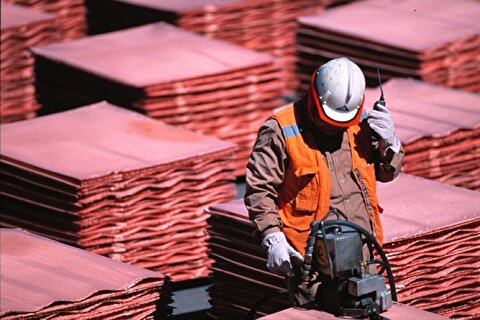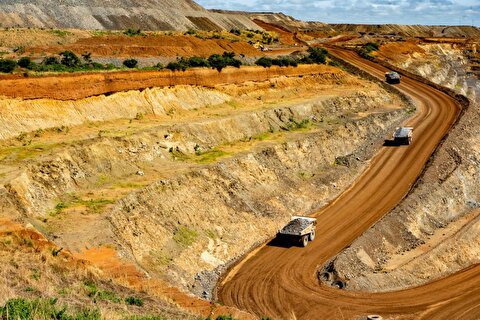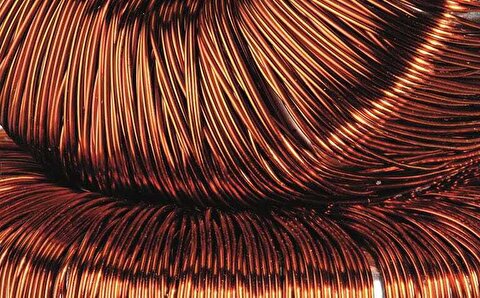
The big problem haunting top iron ore miner isn’t so easy to fix


Earlier this week, Vale launched a pilot project for environmental recovery of the impacted area in Brumadinho. Image courtesy of Vale SA
A year later, the gamble paid off, but with a caveat: The stock rebounded, but Vale’s reputation hasn’t — and that’s the problem. While the world’s largest iron ore producer, like all miners, has struggled with plenty of environmental issues in the past, there’s no denying that a company’s green credentials suddenly matter now more than ever.
“With sustainability growing in importance by the day for the global investor, my big concern now relates to the long term and whether Vale is going to be able to change its image”
Leonardo Rufino, portfolio manager at Pacifico Gestao de Recursos
“With sustainability growing in importance by the day for the global investor, my big concern now relates to the long term and whether Vale is going to be able to change its image,” said Leonardo Rufino, portfolio manager at Pacifico Gestao de Recursos. “Because if it can’t, the risk is that Vale ends up being a cheap stock forever.”
Pacifico, along with SPX Capital and Vinland Capital, were among asset managers that scooped up Vale stock after the dam break in January 2019 wiped out a quarter of the company’s market value. Although Tuesday marked an important milestone for Vale as shares closed at their highest since the accident, a look at the miner’s valuation tells a different story. Vale still trades at a discount of at least 20% to peers BHP Group Ltd. and Rio Tinto Plc, based on enterprise-value-to-expected-Ebitda ratio.
Exposure to Vale shares and holding company Bradespar SA at Pacifico Acoes, a fund that Rufino helps manage, rose to about 12% of assets at its peak from 8% around the time of the dam break. The fund has since sold its position in Bradespar, but Vale is still among its top five holdings.
Room to run
If all else were equal, Vale’s fundamentals would signal that the stock has more room to run, Rufino said, adding that he still believes further gains are in its future. The company’s generating cash, and analysts from Bradesco, Scotiabank and Goldman Sachs see a good chance of dividends being reinstated sometime this year. Meanwhile, Rufino says the nuts-and-bolts fallout from the Brumadinho disaster, including potential liabilities and the hit to output, is “mostly priced in.”
Vale has taken several steps to clean up its image in the aftermath. It replaced its chief executive officer, committed to decommissioning the type of dams that faltered and built a treatment plant to clean up polluted water. At investor meetings last month, it focused on green initiatives, including projects to help it become carbon neutral, and also launched an ESG website. The company declined to comment for this article.
“The company’s been careful, taking a lot of provisions and focusing on handling the problem,” said Rufino, who helps oversee 2.2 billion reais ($530 million) in assets at Pacifico. “A discount to its global peers seems unjustified.”
As the world grows increasingly sensitive to environmental issues, money managers are plowing more and more funds into investments that fulfill ESG standards
Vale shares were little changed at mid-day in Sao Paulo, trailing the 0.4% advance for Brazil’s benchmark Ibovespa, amid news of a fresh blow to output, albeit a limited one. Vale said Thursday that it halted operations at the newly acquired Esperanca mine near Brumadinho. The move was a precautionary step to improve safety conditions. Esperanca produces about 1 million tons of iron ore a year, the company said in note.
An urgent note
But as the world grows increasingly sensitive to environmental issues, money managers are plowing more and more funds into investments that fulfill environmental, social and governance — or ESG — standards. The Church of England dumped Vale after Brumadinho’s tragedy and blocked investments in the miner through an ethical exclusion process. And BlackRock, which upped its stake in Vale to above 5% as of December, struck an urgent note in its annual letter to corporate executives: Climate change will upend global finance sooner than they might think. CEO Larry Fink said his firm will take steps to address the issue across the thousands of companies in which it invests.
Brazil’s own reputation isn’t helping Vale. President Jair Bolsonaro has questioned the need for action to combat global climate change and scoffed at his counterparts in Europe who called for him to do more to end the burning of the Amazon.
That backdrop may continue to hinder any Vale upside.
“At some point,” Rufino said, “we need to see a multiple expansion.”
(By Vinícius Andrade and Sabrina Valle)


Newmont nets $100M payment related Akyem mine sale

First Quantum scores $1B streaming deal with Royal Gold

Caterpillar sees US tariff hit of up to $1.5 billion this year

Gold price rebounds nearly 2% on US payrolls data

Copper price collapses by 20% as US excludes refined metal from tariffs

St Augustine PFS confirms ‘world-class’ potential of Kingking project with $4.2B value

Goldman told clients to go long copper a day before price plunge

B2Gold gets Mali nod to start underground mining at Fekola

Copper price posts second weekly drop after Trump’s tariff surprise

Codelco seeks restart at Chilean copper mine after collapse

US slaps tariffs on 1-kg, 100-oz gold bars: Financial Times

BHP, Vale offer $1.4 billion settlement in UK lawsuit over Brazil dam disaster, FT reports

NextSource soars on Mitsubishi Chemical offtake deal

Copper price slips as unwinding of tariff trade boosts LME stockpiles

SAIL Bhilai Steel relies on Danieli proprietary technology to expand plate mill portfolio to higher steel grades

Alba Discloses its Financial Results for the Second Quarter and H1 of 2025

Australia weighs price floor for critical minerals, boosting rare earth miners

Australia pledges $87M to rescue Trafigura’s Nyrstar smelters in critical minerals push

Fresnillo lifts gold forecast on strong first-half surge

US slaps tariffs on 1-kg, 100-oz gold bars: Financial Times

BHP, Vale offer $1.4 billion settlement in UK lawsuit over Brazil dam disaster, FT reports

NextSource soars on Mitsubishi Chemical offtake deal

Copper price slips as unwinding of tariff trade boosts LME stockpiles

SAIL Bhilai Steel relies on Danieli proprietary technology to expand plate mill portfolio to higher steel grades

Alba Discloses its Financial Results for the Second Quarter and H1 of 2025

Australia weighs price floor for critical minerals, boosting rare earth miners

Australia pledges $87M to rescue Trafigura’s Nyrstar smelters in critical minerals push

Fresnillo lifts gold forecast on strong first-half surge














